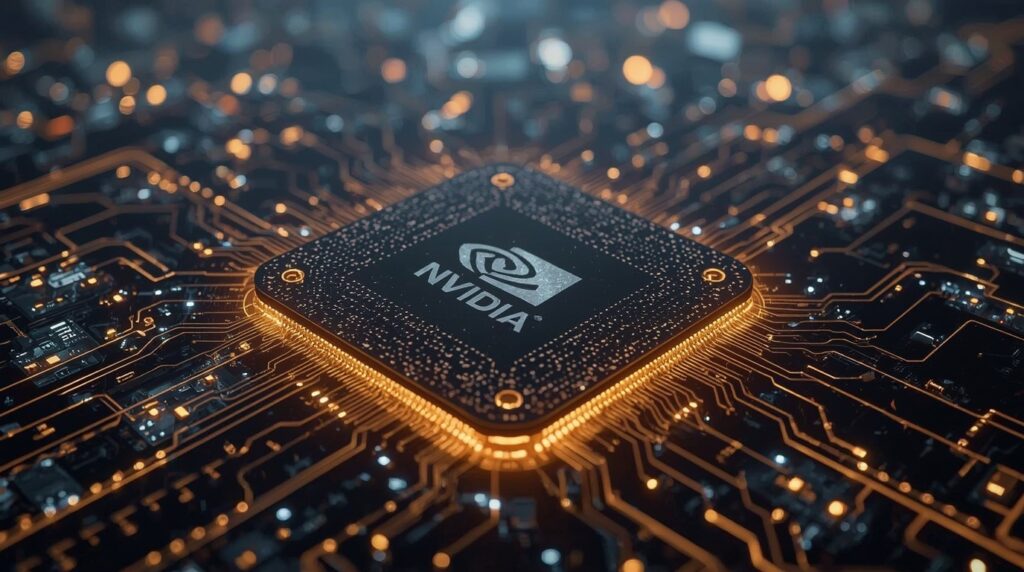Introduction to AI and Automation in Business
Artificial Intelligence (AI) and automation technologies have rapidly transformed how businesses operate, delivering enhanced productivity, cost savings, and innovative service models. Key advancements in AI hardware, like NVIDIA’s recently announced Blackwell chip, are critical enablers for these benefits by dramatically improving computational capabilities and energy efficiency.
The Role of NVIDIA’s Blackwell Chip
NVIDIA’s Blackwell chip represents a major leap in generative AI processing power. Officially announced by NVIDIA, the chip delivers double the performance of its predecessors while significantly improving cost and energy efficiency. This boost allows businesses to deploy more sophisticated AI models faster and more economically, accelerating automation and intelligent decision-making across sectors [1].
Business Applications of Enhanced AI Hardware
With the Blackwell chip’s enhanced capabilities, companies can expect expanded applications of AI-driven automation in various domains:
- Customer Service Automation: Enterprises increasingly leverage generative AI powered by superior chips to automate complex customer interactions via chatbots and virtual assistants, improving response times and customer satisfaction.
- Data Analysis and Insights: Enhanced AI processing allows businesses to analyze massive datasets more rapidly, uncovering actionable insights that inform strategy and operations.
- Supply Chain Optimization: Real-time forecasting and intelligent automation optimize inventory management, reducing waste and improving delivery timelines.
- Content Creation and Personalization: Marketing teams use generative AI models to produce tailored content at scale, boosting engagement and conversion rates.
For example, a financial services firm using AI-powered risk assessment models can now run deeper simulations and detect fraud patterns more efficiently, reducing operational risk and regulatory costs [2].
Steps to Integrate AI and Automation Using Advanced AI Chips
To capitalize on these technological advances such as NVIDIA’s Blackwell chip, businesses should consider the following implementation steps:
- Assess Current Infrastructure: Evaluate existing AI and automation capabilities against business needs to identify gaps.
- Define AI Use Cases: Prioritize processes where automation and AI can drive measurable ROI, such as customer support or predictive maintenance.
- Partner with Providers: Engage with hardware and software vendors to acquire chips like Blackwell and compatible AI platforms.
- Develop and Train Models: Utilize improved compute power to build, train, and fine-tune AI models tailored to business scenarios.
- Deploy Incrementally: Roll out automation solutions in phases, monitoring performance and adjusting based on results.
- Ensure Employee Readiness: Provide training and change management to integrate AI tools smoothly with existing workflows.
Risks and Considerations
Despite significant benefits, integrating advanced AI and automation technologies involves risks that businesses must address carefully:
- High Initial Costs: Although efficient, new AI hardware like Blackwell requires upfront investment—planning budget and ROI timelines is essential.
- Data Privacy and Security: Scaling AI often entails handling large volumes of sensitive data, requiring strict compliance and cybersecurity measures.
- Skill Gaps: The complexity of AI technologies demands skilled personnel—organizations must invest in training or hiring talent.
- Model Bias and Ethical Issues: AI models may inherit biases, potentially leading to unfair or invalid business decisions without proper oversight.
Callout: Companies that strategically integrate advanced AI hardware like NVIDIA’s Blackwell chip while managing these risks position themselves to gain a competitive edge through accelerated innovation and operational excellence.
Conclusion
The introduction of NVIDIA’s Blackwell chip marks a pivotal moment in AI-driven automation for businesses. By doubling performance and improving efficiency, it enables deployment of more powerful generative AI solutions that can transform operations across industries. Enterprises that follow a structured approach towards adoption and address associated risks will unlock substantial value, enhancing customer experiences, optimizing supply chains, and driving data-driven innovation.
As AI hardware continues to advance, staying informed about such innovations and their practical applications is essential for business leaders aiming to harness automation as a key growth driver.




